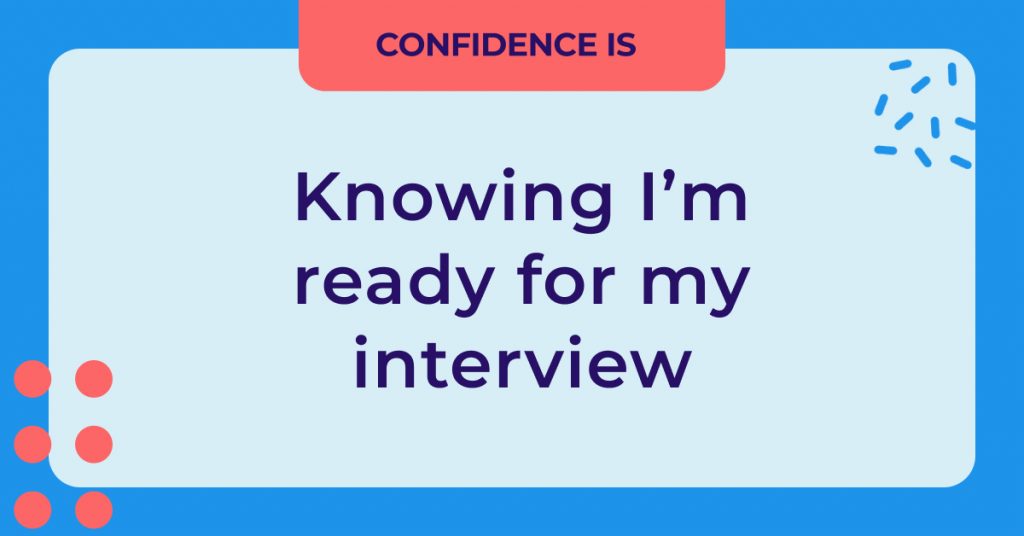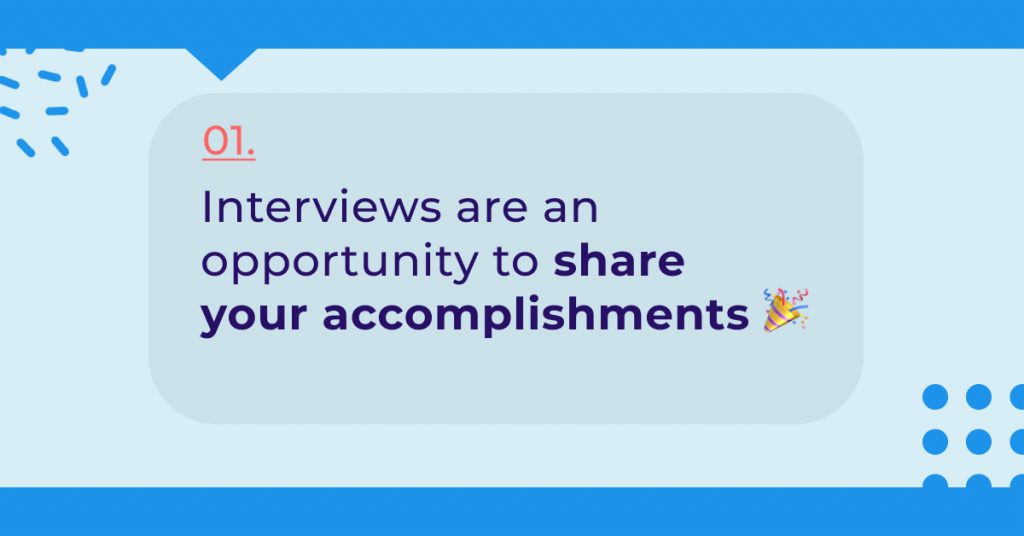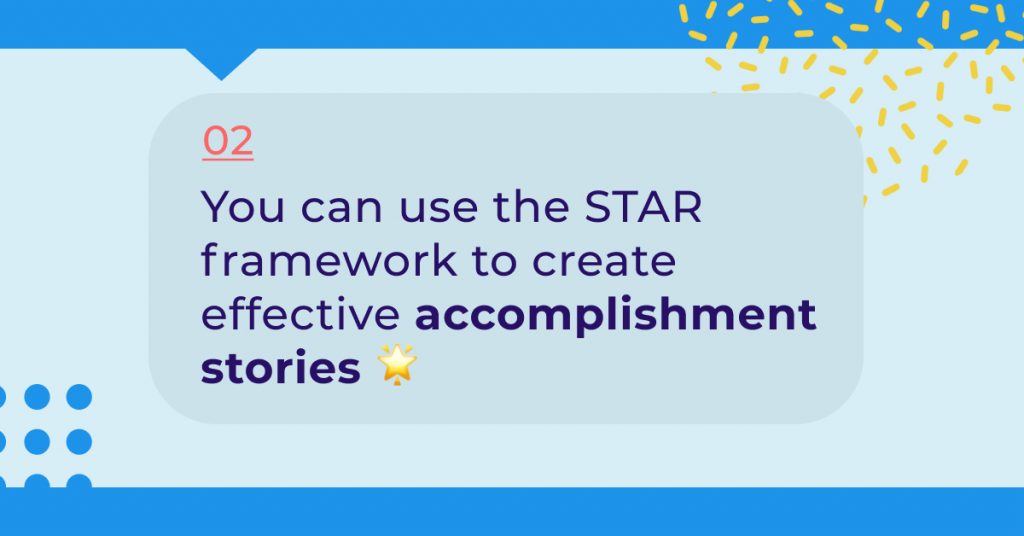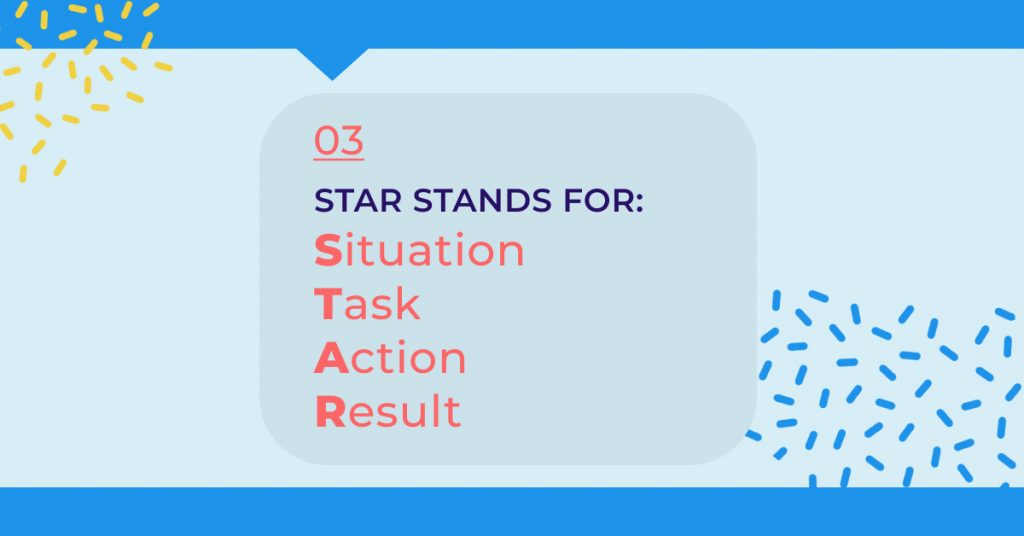How to Prepare for Job Interviews
Author: Iris
Go to Source

Download this guide in PDF format
This guide is designed to help you effectively prepare for your first conversation with a recruiter, hiring manager, or non-technical team member. You can use this guide whether you’re new to interviewing, haven’t interviewed in a long time, or just want to refresh your interviewing skills. We’ll discuss some essential interview preparation strategies that range from focusing on your mindset to learning how to present your past experience in the best light possible.
The key to successful interviews is preparation. No matter where you are in your career journey—first-time job-seeker, or a mid-career professional making a switch to a new field—interviews can make you feel nervous, anxious, and overwhelmed. While it’s perfectly normal to feel this way, the good news is that there are strategies you can embrace that will help you not only feel better about interviews but perform better when you’re actually interviewing.
General Interview Preparation
You don’t have to wait until you have an interview scheduled to begin preparing. You can use the recommendations outlined in this section to develop interviewing skills that you’ll be able to take with you to every interview.

Prepare accomplishment stories
Telling effective stories about past accomplishments is fundamental to interviewing success. Stories help interviewers understand how you behave in different situations and help them imagine you in the role. Stories also demonstrate your ability to apply the skills you’ve listed on your resume and show that your knowledge is not limited to theory.
Whenever possible, try to work real-life examples into your interview answers. In addition to doing this when a question directly calls for it (“Tell me about a time when you …”), you can also look for opportunities to reference actual accomplishments when answering broader questions about your leadership style or approach to collaboration.
Know which story to tell
It can be difficult to look back on your entire career and pick just the right story on the spot during an interview. To prepare, think of 20-30 stories you can share from different areas of your life. If you need to, consult colleagues, performance reviews, or project documentation to refresh your memory regarding your accomplishments. If you don’t have a lot of professional experience, ask your friends, family, or teachers for stories of when you’ve performed at your best.
Tip: Not every accomplishment story needs to describe a major event. Sometimes, something as simple as finding a way to help a colleague troubleshoot their computer when IT wasn’t available is worth talking about if you want to illustrate your resourcefulness and commitment to your team’s success.

Make sure you’re prepared to tell your stories effectively
To keep your interviewer’s attention, you should keep your stories to no more than two minutes. This can be difficult with stories you really care about. However, it’s important to remember that each story is there to demonstrate a point.
To develop effective accomplishment stories, you can use a framework called STAR. STAR is an acronym that stands for Situation, Task, Action, and Result. You can use this structure to keep your stories focused on only the most important points. This will help an employer understand how you overcome obstacles and accomplish tasks.

- Situation: What is the context for your story? As relevant, include details like the company, role, or project.
- Task: What did you need to accomplish, and what were the challenges?
- Action: What did you do to accomplish your goals? As applicable, make sure to highlight those times when you went above and beyond what was required.
- Result: What were the positive impacts of your actions? As applicable, include what could have happened had you not gone above and beyond.
Prepare for common interview questions
While you will never know which exact questions you’ll receive during an interview, you can prepare by thinking through what you want to communicate and practicing answers to common questions.
To set your interview communication strategy, outline what you want the interviewer to know about you. Identify three main communication points, and make sure that everything you say supports those points.
For example, for an HR Generalist role, you might want to highlight:
1) your knowledge of HR management systems
2) your passion for helping people navigate processes
3) your skills in coaching and conflict resolution
While this is not the only information you’ll share during the interview, these kinds of details are what you want the interviewer to take away, even if they don’t remember every aspect of your conversation.
Establishing the main points you want to convey will help you focus on reiterating them throughout the conversation. This will, in turn, help ensure that your interviewer remembers them. Having a clear communication strategy in place ahead of time will also help you avoid accidentally contradicting yourself from question to question. For example, if one of your main points is about being meticulous about procedures, you wouldn’t want to share a story about skipping product testing steps in order to meet business deadlines. Even if that story shows that you can overcome obstacles, it will undermine your main message.
Start Practicing
Once you know your main speaking points, you can start practicing actual answers. Common interview questions you can begin your preparation with include: Can you tell me about yourself? Why should we hire you? What is your biggest weakness? Why are you looking for a job? Why do you want this job?
You might want to jot down ideas for answering each question in advance. Or, you can jump straight into practicing and iterating on your answers. Either way, try to keep the following points in mind when devising effective interview answers:
- Think about the question from the interviewer’s point of view—what might they be trying to learn, and what are you communicating with your answer?
- Ensure your answer is aligned with your main communication points (or, at the very least, doesn’t contradict them)
- Include stories to illustrate your point whenever possible—even if a question doesn’t directly call for you to do so—but try to keep them short and focused.
- Keep your answers to a maximum of two minutes (or 30 seconds for a phone interview) to keep the interviewer engaged. You can elaborate further if the interviewer asks you to.
Tip: Talking through your answers out loud (the way you would in an interview) is more effective than thinking them through in your head. Use a voice recorder and a timer to help. To mimic the unpredictability of a live interview, create an additional list of 30-50 questions you haven’t yet prepared for (just type the phrase “common interview questions” into your favorite search engine). Draw one question at random, and see if you can answer it on the spot. Record and timing yourself in the process, and review the results to identify areas for improvement.
Preparing for a Specific Interview
Once you have an interview scheduled, you should invest some time into preparing for it specifically.
Know what to expect
How is your upcoming interview going to be set up? Interviews can be conducted in person, over the phone, or virtually using teleconference software such as Zoom, Webex, or Google Meet. Most commonly, interviews take place in one-on-one settings, but panel and group interviews are also a possibility. Often, there are multiple rounds. You might start out speaking with a recruiter before moving on to in-depth conversations with the hiring manager and other stakeholders. As a part of the interview process, you might need to prepare a presentation or go through a case study.
It’s important that you understand the format of the interview ahead of time, and that you know who you’ll be speaking with, so you can prepare accordingly. Usually, that information is included in the interview invitation. If it’s not shared with you in advance, you should follow up with the person scheduling your interview to see if they can share a schedule and a list of interviewers.
Research the company, the role, and your interviewers
The better you understand the role you are interviewing for, the more likely it is you’ll be able to provide effective answers. Do as much research in advance as possible to help ensure you know what to expect, and what to provide.
Company: One of the more common interview questions is, “why do you want to work for this company?” You should specifically plan to have an excellent answer to this question. Is it their role in the marketplace? Their corporate culture? Is it their approach to the field, or the mission?
You can use the following resources to get to know the company you are interviewing with:
- Company website: Learn about the business, company structure, leadership, mission, and values.
- News: Search Google News or other news aggregators to learn about current events involving the company.
- Employer review sites: Explore sites like Glassdoor to find out what people are saying about working for the company.
Role: Carefully read through the job description and analyze what the employer is seeking out. Search LinkedIn for people with similar job titles at the same company. Explore their profiles to see how they describe their role, and to understand their backgrounds and skill sets.
Interviewers: When you receive the names and titles of your interviewers, look them up on LinkedIn. Analyze their current roles and prior experience to understand their professional perspectives. Check to see if any of your interviewers have LinkedIn reviews. Reviews from others often provide valuable insight into people’s communication styles and personalities. You can use this kind of information to help you understand how to connect with them better.
Tailor your answers to the job
To understand what’s relevant, go over the job description and match your experiences, skills, and accomplishments to each sentence. For example, if one of the responsibilities reads “assist translation project management by maintaining frequent and effective communication with multiple vendors and ensuring timely deliveries,” then plan to outline your experience managing vendors and deadlines and accomplishments associated with those activities. If one of the requirements is “ability to thrive in a fast-paced, ever-changing environment, and to radiate positivity even while under pressure,” make sure to prepare STAR stories that demonstrate these abilities.
Prepare questions
In most interviews, you’ll have time to ask your own questions about the role and the company. This is a valuable opportunity for you to demonstrate your commitment to the role, and to gather the information you need to make your decision about whether the role and the company are right for you. Thoughtful questions can help you stand out from other interviewees because they can lead to discussions that go beyond a standard interview dialogue.
Just as you need to prepare interview answers in advance, you should also prepare questions in advance. If you are interviewing with multiple people, do your best to match your questions to each individual. Keep in mind that, often, different interviewers will be tasked with focusing on specific topic areas aligned with their job roles, so optimizing for each interviewer with preliminary research is a really effective strategy. For example, the hiring manager is likely to have the most information about the company’s goals for the role, whereas someone from the technical team will know more about the company’s technology stack.
Below you’re find some general best practices for ensuring success on the day of the interview:
Success on the Day of the Interview
- Dress one step up from how people in the office dress. If you’re not sure what’s appropriate, you can ask the recruiter for guidance.
- Bring a copy of your resume, the job description, and a notepad.
- Arrive a few minutes early. For an on-site interview, account for the time required to find the location, to park, and to check in.
- For a virtual interview, make sure you are clear about how you’re going to connect with the interviewer. Download any necessary software ahead of time, and practice using it until you feel at ease.
- Keep yourself comfortable. Make sure you can fully focus on the conversation free of distractions. If you need to adjust or address a distraction, don’t hesitate to request a quick break—to get a drink of water, stretch, or just re-focus.
- Send thank-you notes to each interviewer within 24 hours of the interview. If you don’t have every interviewer’s email address, you can ask the recruiter to forward your note. Make each note personal, thanking the interviewer for their time and attention, reiterating the main points of your conversation, and following up on anything you might have missed in the interview.
Conclusion: The Interviewing Mindset
Once you complete your preparation, remember to keep an open mind. While you can’t know in advance exactly what will happen in any given interview, or what specific questions you’ll need to answer, you can practice ahead of time to build your confidence, and you can use this guide to develop strategies to help you navigate the unknown. Remember, interviews are a great opportunity to demonstrate your ability to think on your feet!
Doing your research ahead of time is critical, but it’s also important to avoid the mistake of assuming you know everything about the role because you’ve done your homework. Job descriptions can be imprecise, hiring managers might have special requirements, and there may be other factors at play. If you go in with the goal of better understanding the role during the interview, you will feel more empowered to decide whether it’s the right fit for you, instead of waiting for the employer to make that decision for you.
As a final recommendation, remember Maya Angelou’s quote: “People will forget what you said, people will forget what you did, but people will never forget how you made them feel.” Positivity is contagious. You can project it by smiling, by being genuinely excited about the role, and by focusing on the good in your past. Avoid negative talk at all costs—whether it’s about what traffic was like that morning, or what you didn’t like about a previous employer. More than anything else, you want to make your interviewer see you as a great candidate for the role. Share your positivity, and they will remember you as someone they want to work with.
The post How to Prepare for Job Interviews appeared first on Coursera Blog.
